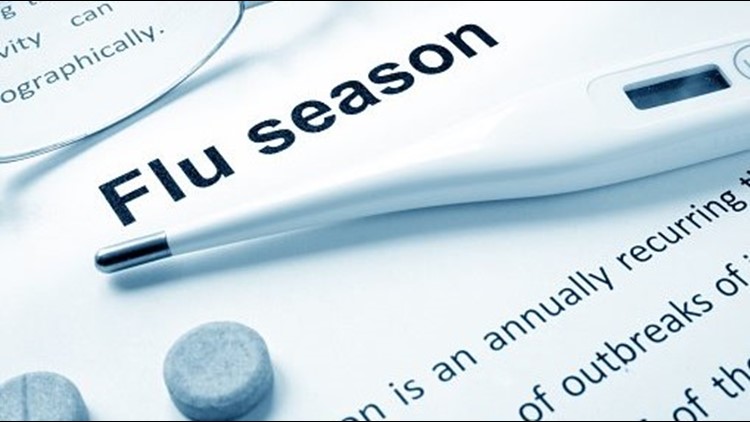Influenza cases have risen sharply across the nation and remains widespread in 49 states, according to the Centers for Disease Control. The severe flu season is on track to be as bad the 2014-15 outbreak that caused an estimated 56,000 deaths, federal health officials said.
In Georgia, there have been 51 confirmed flu-related deaths as of Feb. 2, according to the Georgia Department of Health.
SYMPTOMS (Info from Georgia Department of Health):
The predominant strain of flu circulating in Georgia and around the country is influenza A (H3N2). This strain can be particularly hard on the very young, people over age 65, or those with existing medical conditions. Every individual over six months of age should get a flu shot.
Flu symptoms and their intensity can vary from person to person, and can include fever, cough, sore throat, runny or stuffy nose, body aches, headache, chills and fatigue.
WHAT TO DO IF YOU GET SICK (Info from CDC)
If you get sick with flu symptoms, in most cases, you should stay home and avoid contact with other people except to get medical care.
If, however, you have symptoms of flu and are in a high risk group, or are very sick or worried about your illness, contact your health care provider (doctor, physician assistant, etc.).
Certain people are at high risk of serious flu-related complications (including young children, people 65 and older, pregnant women and people with certain medical conditions). This is true both for seasonal flu and novel flu virus infections. (For a full list of people at high risk of flu-related complications, see People at High Risk of Developing Flu–Related Complications)
If you are in a high risk group and develop flu symptoms, it’s best for you to contact your doctor early in your illness. Remind them about your high risk status for flu. CDC recommends that people at high risk for complications should get antiviral treatment as early as possible, because benefit is greatest if treatment is started within 2 days after illness onset.
HOW TO PREVENT THE FLU (Info from Ga. Dept. of Health)
There are things you can do to help prevent the spread of flu – tried and true measures your mother taught you.
- Frequent and thorough hand-washing with soap and warm water. Alcohol based gels are the next best thing if you don’t have access to soap and water.
- Cover your nose and mouth when coughing and sneezing to help prevent the spread of the flu. Use a tissue or cough or sneeze into the crook of your elbow or arm.
- Avoid touching your face as flu germs can get into the body through mucus membranes of the nose, mouth and eyes.
- If you are sick, stay home from school or work. Flu sufferers should be free of a fever, without the use of a fever reducer, for at least 24 hours before returning to school or work.
Full flu season coverage:
- 'She was a beautiful and vibrant young woman.' Parents remember teen who died from flu complications
- Local 15-year-old first pediatric flu-related death in Georgia
- Atlanta hospital deploys mobile emergency center to aid flu treatment
- Severe flu still widespread; baby boomers hit especially hard
- Seven more children dead nationwide from flu | Health officials expect that number to rise
- Getting tested for the flu: Sorting through different flu tests, 'false negative' tests and more
- This flu season is worse than past seasons
- Got the flu? Here's when to go to the ER
- Georgia State researchers develop new 'universal' vaccine to fight flu
- Georgia hospitals with visitation restrictions; No kids under 13 allowed
- This year’s severe flu exposes a serious flaw in our medical system
- Parents, these are the best ways to prevent the flu for your kids
VERIFY
- VERIFY: Does Tamiflu work and should it be used at all?
- VERIFY: Are children dying from the flu because they were not vaccinated?
- VERIFY: Can you get the flu twice in one season?
- VERIFY: Do masks and wipes help protect you from the flu?
- VERIFY: Is there a flu vaccine shortage?
- VERIFY: Does breast milk actually protect babies from the flu?
- VERIFY: Do herbal remedies help ward off the flu?
- VERIFY: Does applying antibiotic ointment inside your nose help prevent the flu?
MORE RESOURCES:



